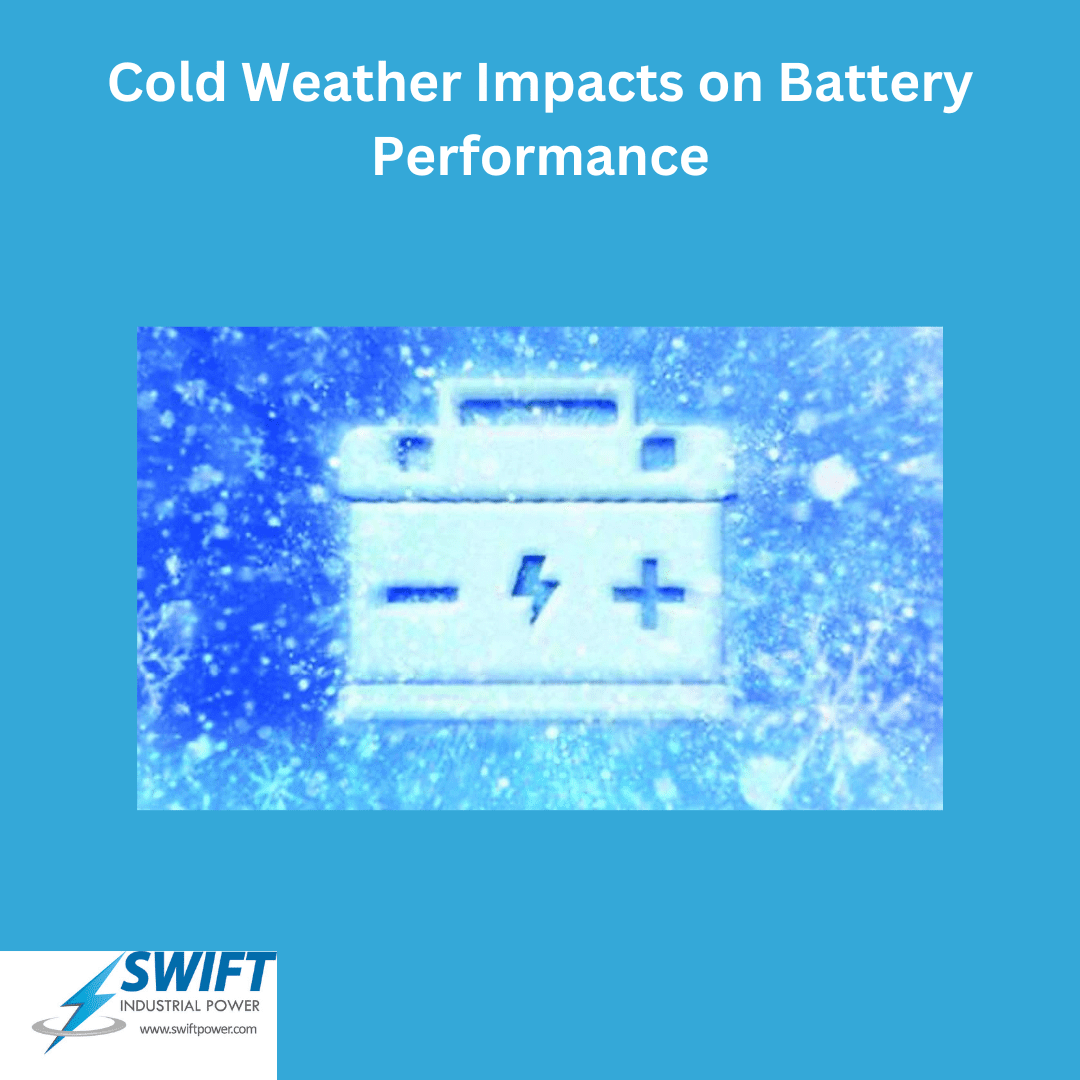Chilly Charge: How Cold Weather Impacts Lead Acid Battery Performance
When temperatures plummet and winter arrives, it’s not just people who feel the chill – forklifts and stationary power systems equipped with lead acid batteries also face challenges in cold weather. In this blog post, we’ll explore the fascinating effects of low temperatures on lead acid batteries, commonly used in forklifts and stationary power applications. Understanding these dynamics can help you ensure optimal battery performance even when the mercury drops.
Understanding Lead Acid Batteries: Lead acid batteries are stalwarts in the realm of energy storage, prized for their reliability and cost-effectiveness. Used extensively in forklifts and stationary power systems, these batteries consist of lead plates submerged in a sulfuric acid electrolyte solution. This robust chemistry enables them to deliver steady power for various industrial applications.
Cold Temperature Effects: However, when temperatures plummet, the efficiency of lead acid batteries can take a hit. Cold weather slows down the chemical reactions within the battery, impairing its ability to deliver power effectively. This slowdown becomes especially evident in forklifts, where sluggish battery performance can impact productivity and operational efficiency.
Freezing Point: One critical aspect of cold weather’s impact on lead acid batteries is the freezing point of their electrolyte solution. While water freezes at 0°C (32°F), the sulfuric acid solution in lead acid batteries has a lower freezing point. Nevertheless, as temperatures approach this threshold, the electrolyte becomes more viscous, impeding battery function.
Effects on Performance: The reduced efficiency of lead acid batteries in cold temperatures can manifest in several ways. In forklifts, operators may experience longer charging times, decreased runtime per charge, and diminished overall performance. Similarly, stationary power systems may struggle to provide consistent power output, leading to disruptions in operations and potential downtime.
Mitigating Cold Weather Challenges: To mitigate the effects of cold weather on lead acid batteries in forklifts and stationary power systems, consider implementing the following strategies:
- Maintain battery charge: Keep batteries fully charged to maximize their resilience in cold conditions.
- Provide shelter: Store forklifts and stationary power units in enclosed spaces or equip them with protective covers to shield them from the cold.
- Implement battery warming solutions: Utilize battery warming devices or insulated enclosures to maintain optimal operating temperatures.
- Monitor battery health: Regularly inspect batteries for signs of deterioration or reduced performance, and address any issues promptly to prevent further degradation.
Conclusion: Cold weather poses unique challenges for lead acid batteries used in forklifts and stationary power systems. By understanding how low temperatures affect battery performance and implementing proactive measures to mitigate these effects, you can ensure reliable operation and prolong the lifespan of your batteries. Stay informed, stay prepared, and keep your batteries charged for the tasks ahead, even in the coldest of conditions.

